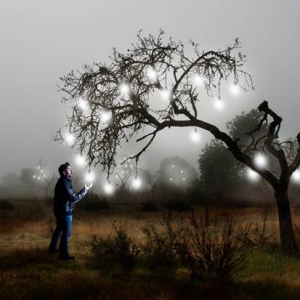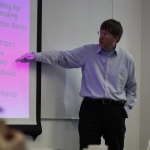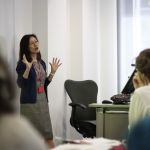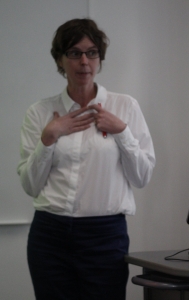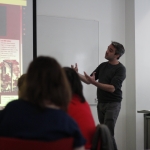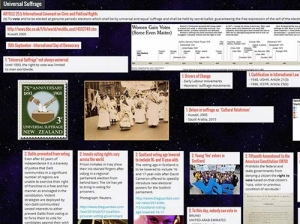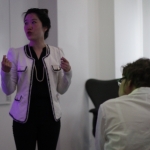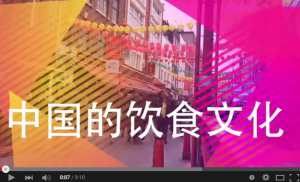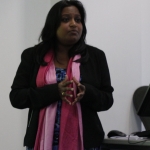Changes to Moodle for 2016/17
The Moodle recharge event took place on Tuesday 27 June for those that couldn’t attend a brief summary of what went on can be found below.
 |  | 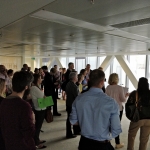 |
This summer lots of changes are taking place so we split attendees up into four rooms and got them to rotate round to each room. We asked everyone to give us feedback on the changes and the padlet is still open if you would like to comment.
New Features
 Adding links to Echo recordings will change with a plugin making it easier for students and teachers to view recordings – see our online guide.
Adding links to Echo recordings will change with a plugin making it easier for students and teachers to view recordings – see our online guide.
Reading lists will now be added using the External Tool or reading list blocks – see our online guide.
There are lots of new features for Moodle 3.1 – see our website for more details and new guides will be created over the summer. In addition to our usual Moodle training before the start of term we are also offering bespoke training sessions for departments. If you would be interested in this please get in contact (Lti.support@lse.ac.uk).
New themes
The look of Moodle is changing to be more modern and in line with the new LSE website.
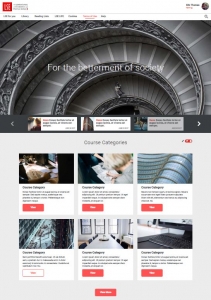 | 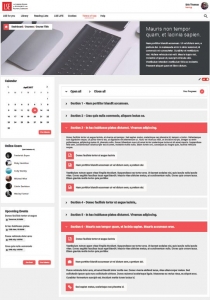 | 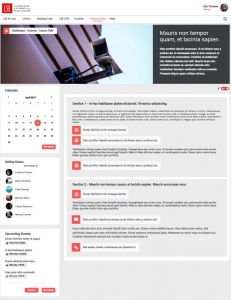 | 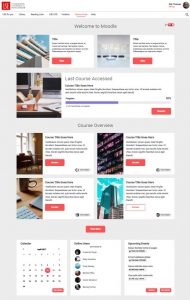 |
 LTI are working on getting the Moodle mobile app ready for 2017/18. The app can be downloaded from itunes or Google play and more information will be made available on our website over the summer.
LTI are working on getting the Moodle mobile app ready for 2017/18. The app can be downloaded from itunes or Google play and more information will be made available on our website over the summer.
Turnitin have also made changes to their theme and on 1 August will introduce the Turnitin Feedback Studio which featuers a user-friendly interface, with a responsive design that is compatible with a wide range of devices. More information about the changes can be found on our website.
My Feedback & Moodle archive
My Feedback is a feature that has been developed by UCL to improve access to assessment and feedback for students and staff. One single view for all Moodle activities with marks and feedback. The report will be combined with a live archive of Moodle so that users can view marks and feedback from previous years. There will be a variety of options for staff with different roles gaining an overview of students marks and feedback.
Coursework has been created by the Royal Veterinary College to enable more online and assessment and feedback options in Moodle. LTI will be working on making it compatible with LSE Moodle for individual pilot projects in 2017/18. Features include: double blind marking, sample marking, sampling workflows, personal deadline and no deadline assignments. If you are interested in piloting this please contact LTI.Support@lse.ac.uk
Moodle labs & Moodle Audit
 Moodle labs is a live instance of the most current version of Moodle which is available for LTI Spark or Ignite funded projects.
Moodle labs is a live instance of the most current version of Moodle which is available for LTI Spark or Ignite funded projects.
The Moodle Audit took place in March 2017. LTI went through the methods and overall findings of the independent review. Individual results will go out to each department in July for review with recommendations for improving your courses.
Next steps
Each department will be sent the results of the Moodle audit. We are currently working on new guides and case studies to go on our website ready for the start of term. We will be running bespoke Moodle training for departments – if you are interested in setting something up then please get in contact (LTI.Support@lse.ac.uk).
The Moodle refresh will take place on Tuesday 15 August for the majority of courses and Tuesday 12 September for courses used to collect dissertation submissions. On these dates Moodle will be unavailable all day and students must ensure that they have downloaded any materials they would like to keep before these dates. If you would like your course not to be included in the annual refresh then please let us know as soon as possible (email LTI.Support@lse.ac.uk). More information about the Moodle refresh is on our website.





